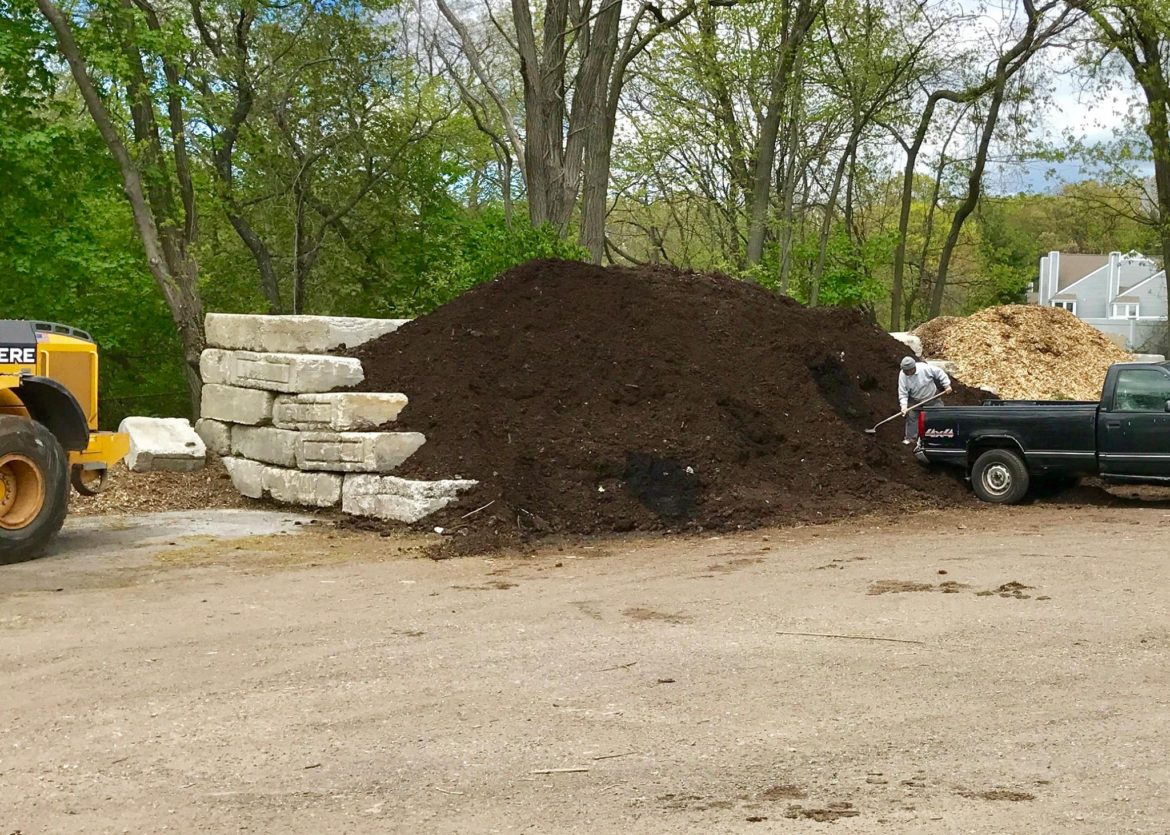Although Public Works Director Edward Gentile Jr. is still looking into the details, he says that buying machine to grind up brush, logs, grass and leaves at the town transfer station on Ledge Road might mean Darien wouldn’t not have to truck out that waste, which costs the town $200,000 a year.
The machine itself costs about $670,000, and it would have to be run and maintained by town employees, but after several years, the expense of its purchase would be made up in savings, he said.
“The simple math is there,” he told the Board of Selectmen Monday night at a budget review meeting. “Throw in maintenance, probably closer to four [years], a little over four. But those are numbers I’m working on now.”

Photo from Darien Recycling Center on Facebook
Dig in! This compost is free.
Selectman Marc Thorne pointed out that the town would have salary costs for employees who use the machine, which chops up the waste into very fine mulch.
“There are contractors and vendors that are looking to take that [mulch] from you,” Gentile said. “For free or to pay, I don’t know. I’m looking into that.”
Darien already makes compost out of a lot of the leaves and grass that gets dropped off at the transfer station, but much of it must be shipped out, Gentile said.
The town uses some of its leaves and grass to make mulch, but it turns over the mulch by hand, a process that New Canaan uses a machine to accomplish, he said. With the grinding machine, the town handle a lot more of the mulch, which could be in a smaller pile because the fine grinding reduces the volume.
Towns and cities in this area typically have their leaves, brush and grass shipped to Weston or Easton, Gentile said. City Carting takes away that kind of waste from Darien “and they take it to a place that does what we propose to do on-site.”
Town Administrator Kate Buch pointed out that the town could also make some of the money back by selling the mulch.
After Hurricane Sandy hit the town in 2012, Gentile said, enormous amounts of branches and other large, natural wood waste were brought to the transfer station, and the town “paid quite a bit to have it all removed.” That’s another cost that could be reduced with the grinder, he indicated.
Jack Davis, chairman of the Representative Town Meeting’s Finance and Budget Committee, spoke at the Board of Selectmen’s meeting, pointing out that a $200,000 reduction in expenses at the transfer station would go quite a way toward reducing the transfer station’s financing burden on the town.
Right now, Davis said, the gap between revenues and expenditures at the station is $500,000. It might be interesting to see if the town could get the transfer station on some kind of financial footing where it would pay for itself, he said. Buch said she agreed, it would be very interesting to see if that might be done.

